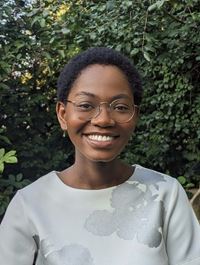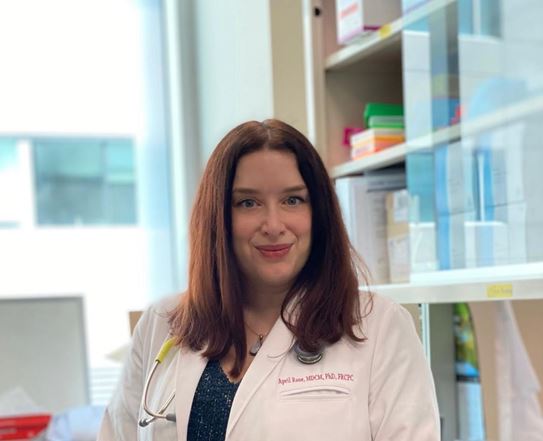Supporting growth and innovation in the next generation of cancer researchers is an important part of the Canadian Cancer Society’s (CCS) research strategy. To strengthen the future of the cancer research network in Canada, CCS is working with our donors and funding partners to recruit and train cancer research trainees at the master's, PhD and postdoctoral levels. Through the unique Research Training Awards program, trainees like Chantel Mukonoweshuro are working with their supervisors to conduct cancer-related research and take part in mentorship, training and knowledge-sharing led by CCS.
A passion for experimental medicine and understanding the world

When Chantel was growing up, she developed a deep interest in science. Through volunteering over the years and personal experiences with members of her community, she saw firsthand the social impact a cancer diagnosis can have on families. She pursued her early passion for science and cancer research throughout university and began studying experimental medicine at McGill.
I became really intrigued by the concept of drug resistance and learning about why and how it happens. And at the same time, I was equally interested in gaining a deeper understanding of how cancer works at a molecular level.
While applying to McGill, she discovered the research program led by Dr April Rose at the Jewish General Hospital and quickly knew she wanted to get involved.
Advancing precision therapies by investigating resistance in tumours

With a CCS Challenge Grant, a team led by Dr Rose is working to understand why some people do not respond to certain precision therapies and how tumours can become more resistant to treatment over time.
Their study was being promoted on the McGill website when Chantel emailed Dr Rose, asking to be a part of her team.
When I met with her, I realized she was very impressive,” says Dr Rose. “And it was clear that she was quite driven and focused on her goals. We had similar interests and when she said she wanted to be a clinician scientist, I couldn’t say no.
A gene called BRAF is one of the most commonly altered pieces of DNA in cancer. Mutations in this gene are found in several types of cancer, including lung, colorectal and skin cancer. Approximately two-thirds of tumours with alterations in BRAF have the same type of mutation and can be treated with existing drugs. Dr Rose’s team is using lab techniques to identify which BRAF alterations in other tumours make cancer cells resistant to therapy. They are also testing combinations of drugs to develop new treatment strategies. If successful, this research could provide new ways of treating tumours and improving patient outcomes.
As a member of Dr Rose’s team, Chantel is working to gain a better understanding of BRAF mutants and discover key elements that enable abnormal responses. If successful, her project could help improve current therapies to make these tumours vulnerable and more responsive to treatment for people affected by this disease.
Recognizing the impact of donors
Because of the generosity of our donors and funding partners, Chantel is grateful to have the opportunity to work with Dr Rose. She is also looking forward to attending more CCS-run career development workshops.
“Donors are really investing in a future where new discoveries can be made in order to provide better outcomes for patients that were not possible before,” she says.
Dr Rose agrees, saying she feels honoured to have been funded by CCS. As Chantel’s mentor, she is grateful that CCS gives learning opportunities to people at the beginning of their careers, putting them on the path to be great researchers.
You need to invest time and effort into the people that you’re working with in the team. The more you invest, the more you get back out of it. Then you’re better able to solve the problem and the whole process is much more rewarding.
By donating to CCS, you can help the growing cancer research community.
A special thank-you to our funding partners:
- Canadian Institutes of Health Research
- Canadian Partnership Against Cancer
- CancerCare Manitoba
- Cancer Research Society
- Saskatchewan Health Research Foundation
- The Terry Fox Research Institute
